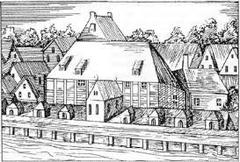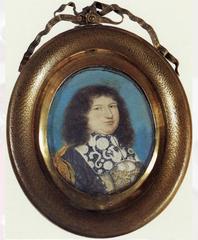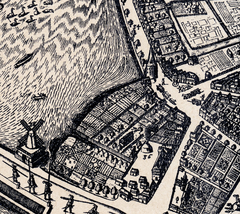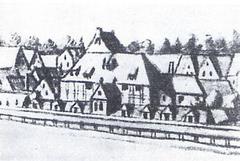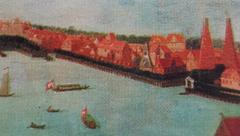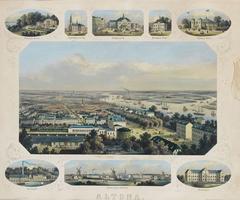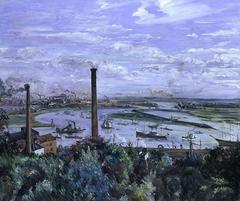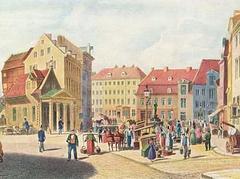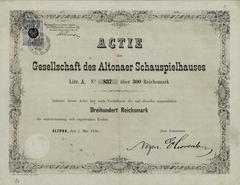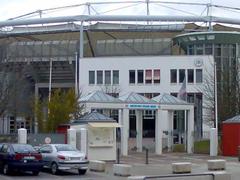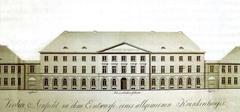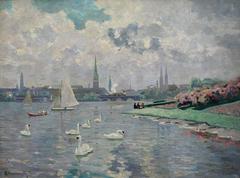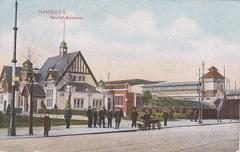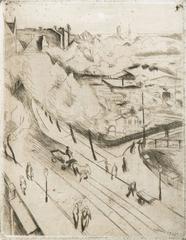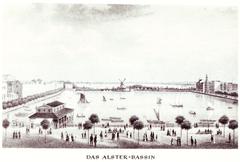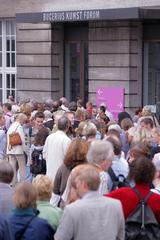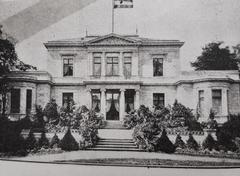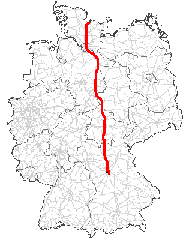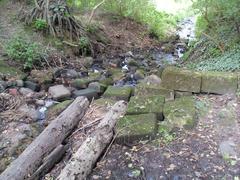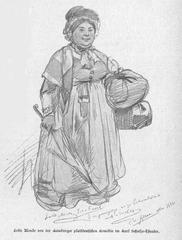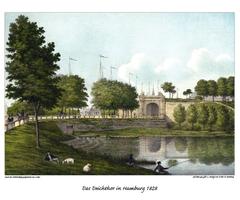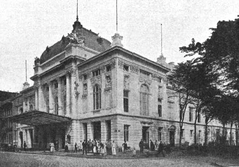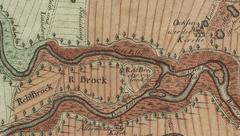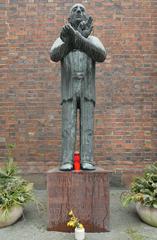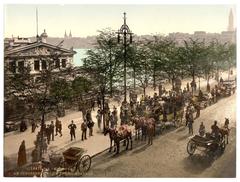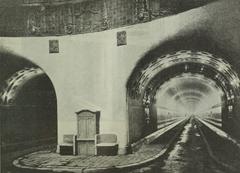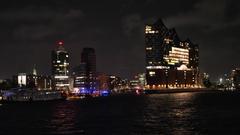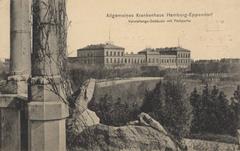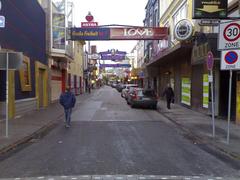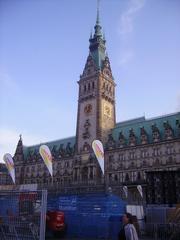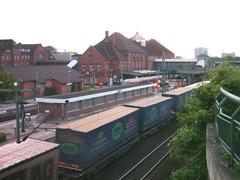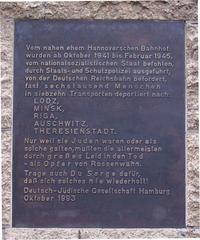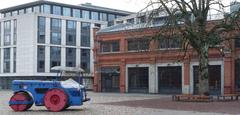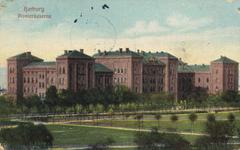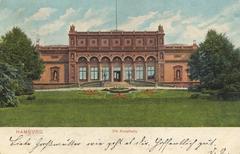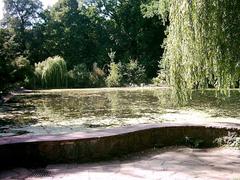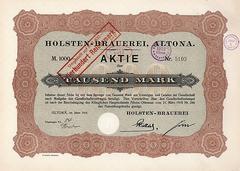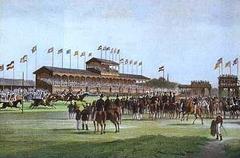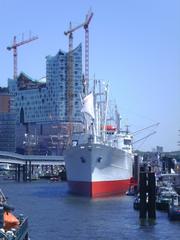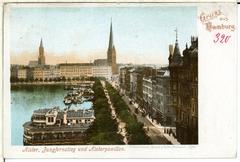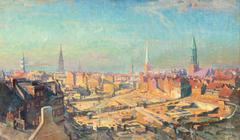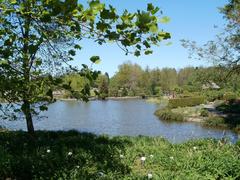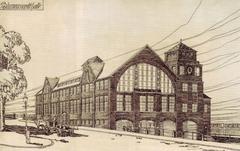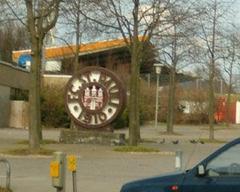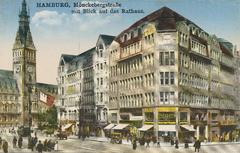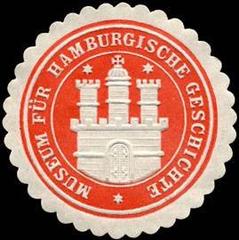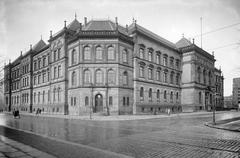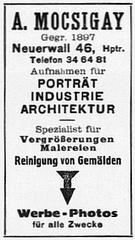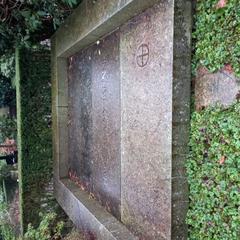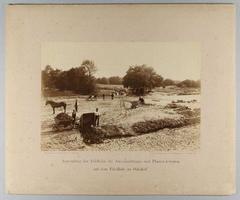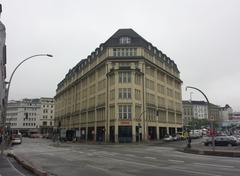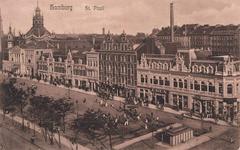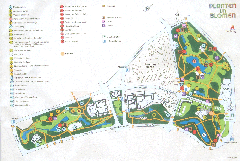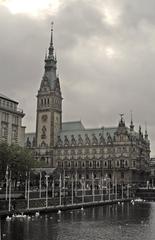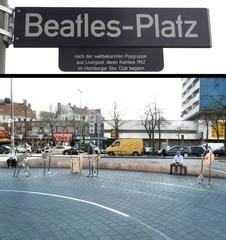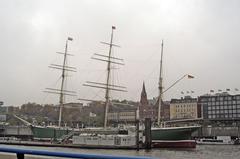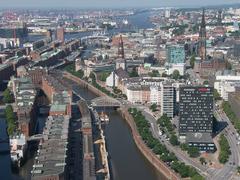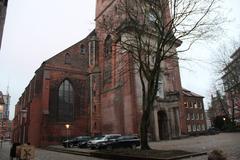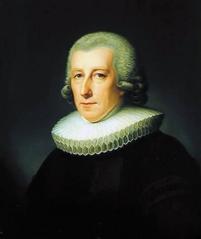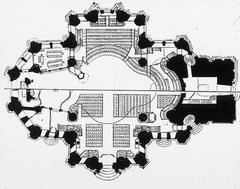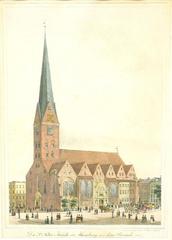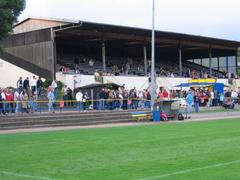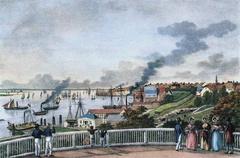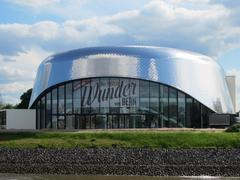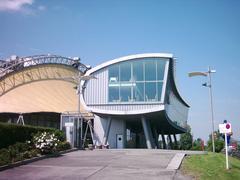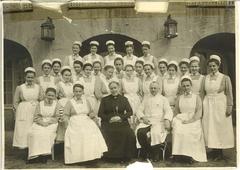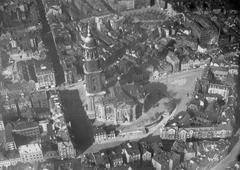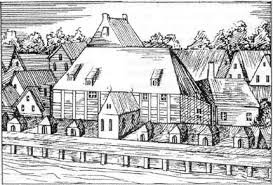
Oper am Gänsemarkt Visiting Hours, Tickets, and Hamburg Historical Sites Guide
Date: 14/06/2025
Introduction
The Oper am Gänsemarkt in Hamburg, Germany, is a cornerstone of European operatic history and a vital part of Hamburg’s cultural identity. Established in 1678 as Germany’s first public, privately managed opera house, it marked a pivotal shift in making opera accessible beyond aristocratic circles (Staatsoper Hamburg). Though the original Baroque-era structure no longer stands, its legacy endures through the Hamburg State Opera and the vibrant Gänsemarkt area. This guide provides a comprehensive overview of the site’s history, significance, practical visitor information, and tips for experiencing Hamburg’s operatic heritage.
Table of Contents
- Introduction
- Origins and Foundation (1678–1700)
- Architectural Evolution
- Cultural Significance
- Notable Premieres and Events
- Decline, Closure, and Enduring Legacy
- Gänsemarkt Today: Visiting Information
- FAQs
- History and Cultural Impact
- Architectural Highlights
- Visitor Guide to Hamburg State Opera
- Future Developments
- Summary & Further Resources
Oper am Gänsemarkt: Historical Overview
Origins and Foundation (1678–1700)
The Oper am Gänsemarkt was inaugurated in January 1678 as Germany’s first public opera house funded and managed by Hamburg’s merchant class, a significant departure from the prevailing courtly opera traditions (Staatsoper Hamburg). The venue’s establishment symbolized the city’s economic growth, civic ambition, and openness to cultural innovation. The wooden building, strategically located at the heart of Hamburg’s commercial district, could host up to 2,000 spectators—an impressive feat for its time.
Despite enthusiastic support from much of the city, the opera faced opposition from religious Pietists who viewed it as a symbol of secular excess. Nevertheless, the Gänsemarkt Opera quickly became central to Hamburg’s musical life, fostering a shift away from church music and traditional civic ensembles (Springer: Emans, 2022).
Architectural Evolution
The original structure was a functional wooden edifice emphasizing acoustics and audience capacity over ornamentation. After 1738, the building transitioned from opera to hosting theatrical troupes and, eventually, Italian opera performances. Demolished in 1763, the site saw the construction of the “Comödienhaus” in 1756, which continued the site’s theatrical legacy under various names until the early 19th century (Carthalia).
Later, new opera venues emerged—most notably on Dammtorstraße—reflecting evolving tastes and the city’s growing cultural ambitions (andre-gansel.de).
Cultural Significance
Oper am Gänsemarkt played a seminal role in democratizing opera, bringing it from aristocratic salons to the public stage. Its programming was cosmopolitan, blending German, Italian, and French works—mirroring Hamburg’s status as an international port and trade hub. The opera house was instrumental in nurturing German-language opera and became a model for similar institutions across Europe (theatre-architecture.eu).
Notable Premieres and Events
The venue’s openness fostered musical innovation. Georg Friedrich Händel began his professional career here, with his opera “Almira” premiering in 1705. Georg Philipp Telemann later revitalized Hamburg’s musical life as city music director, composing numerous operas for the Gänsemarkt stage (Staatsoper Hamburg). The site continued to host important performances and premieres through subsequent iterations.
Decline, Closure, and Enduring Legacy
By 1738, financial struggles and shifting public tastes led to the closure of the original company. Despite its demise, the Oper am Gänsemarkt’s pioneering spirit endured, influencing the foundation of the Hamburg State Opera and cementing Hamburg’s reputation as a beacon of operatic culture (Staatsoper Hamburg).
The Gänsemarkt Site Today: Visitor Guide
Visiting Hours
The original opera house no longer stands, but Gänsemarkt square and its surroundings are open to visitors year-round. The Hamburg State Opera, a short walk away, offers performances throughout the opera season (September–June). Check the official website for the latest performance schedules and box office hours.
Tickets & Tours
No ticket is needed to visit the Gänsemarkt square. Tickets for Hamburg State Opera performances can be purchased online, by phone, or at the box office. Guided walking tours of Hamburg’s historic sites, often including the Gänsemarkt, are available through local operators. Special exhibitions or historical tours may require advance booking.
Getting There
- U-Bahn: Lines U2 and U4 to Gänsemarkt station
- Bus: Multiple city bus lines serve the area
- On Foot: Easily reachable from central Hamburg shopping streets and train stations
Accessibility
The Gänsemarkt area is pedestrian-friendly with smooth pavements and ramps. The Hamburg State Opera provides wheelchair-accessible entrances, seating, and restrooms. Contact the venue in advance for specific accessibility needs (Hamburg Travel - Barrier-Free).
Nearby Attractions
- Hamburg State Opera: Attend a world-class performance
- Jungfernstieg & Alster Lake: Scenic promenades and shopping
- Colonnaden: Historic arcades with boutiques and cafés
- Speicherstadt & Elbphilharmonie: UNESCO-listed warehouse district and iconic concert hall
Photographic Spots & Virtual Tours
Capture the urban energy of Gänsemarkt, historic plaques, and the State Opera’s façade. Virtual tours and galleries are available on cultural websites.
Frequently Asked Questions (FAQ)
Q: Can I visit the original Oper am Gänsemarkt building?
A: The original building was demolished in 1763. Visitors can explore the historic square and commemorative markers.
Q: Where do performances take place now?
A: The Hamburg State Opera at Dammtorstraße 28 is the city’s main opera venue.
Q: How do I buy tickets for Hamburg State Opera?
A: Tickets are available online, at the box office, or via authorized partners. Early booking is recommended, especially for popular events.
Q: Is the area accessible for people with disabilities?
A: Yes, both Gänsemarkt and the State Opera are accessible. Contact the venue for tailored assistance.
Q: Are guided tours available?
A: Yes, check the opera’s website or local tour providers for options.
Hamburg State Opera: Visitor Experience
Facilities & Accessibility
- Location: Dammtorstraße 28, 20354 Hamburg (Hamburg Travel)
- Public transport: U2 (Gänsemarkt), buses, and nearby train stations
- Wheelchair access: Entrances, seating, and restrooms
- Amenities: Cloakroom, bars, lounges, merchandise shop
Programming & Events
The opera’s repertoire spans Baroque to contemporary, hosting up to 380 performances annually, including opera, ballet (Hamburg Ballet), and concerts (Hamburg State Opera). Family-friendly shows and educational workshops foster broader engagement.
Etiquette
- Attire: Smart-casual or elegant attire is customary, especially for evening shows
- Photography: Not permitted during performances
- Arrival: Arrive 30 minutes early for smooth entry
Pre/Post-Show Activities
Explore the lively district, enjoy lakeside walks, dine at nearby restaurants, or visit landmarks like the Rathaus and Speicherstadt.
Future Developments: New Opera House in HafenCity
Hamburg is planning a new, state-of-the-art opera house in the HafenCity district, funded by the Kühne Foundation, with an estimated cost of €330 million (mopo.de). The project aims to provide world-class facilities while balancing preservation and innovation. Updates on the transition, accessibility, and event schedules are available on the official website.
Summary and Recommendations
The Oper am Gänsemarkt’s legacy is inseparable from Hamburg’s identity as a center of artistic innovation and civic pride. Its story—from Baroque beginnings to modern performances—continues to shape the city’s vibrant cultural scene. While the original opera house no longer stands, the Gänsemarkt area and Hamburg State Opera welcome visitors year-round for performances, guided tours, and historical exploration (andre-gansel.de; Staatsoper Hamburg).
For the best experience:
- Book tickets in advance
- Use the Hamburg CARD for discounts and transit
- Explore nearby historical sites
- Download the Audiala app for audio tours and event updates
- Follow the Hamburg State Opera on social media for news and special offers
References
- Staatsoper Hamburg, n.d. History of Oper am Gänsemarkt
- Emans, 2022. The Early Hamburg Opera Scene. Springer
- Carthalia. History of Hamburg Theatres
- Andre Gansel, n.d. Staatsoper Hamburg Research Paper
- Theatre Architecture, n.d. Oper am Gänsemarkt
- MOPO.de, 2023. Hamburg’s New Opera House Plans
- Hamburg.com, n.d. Hamburg State Opera Visitor Information
- Hamburg Tourist Info, n.d. Staatsoper Hamburg
- Hamburg Travel, n.d. Hamburg State Opera Venue Guide
- Hamburg.de, n.d. Cultural Affairs and Accessibility
Plan your visit today to experience the legacy of Oper am Gänsemarkt and the Hamburg State Opera. Use official resources, guided tours, and digital tools like Audiala to make the most of your cultural exploration in Hamburg.
